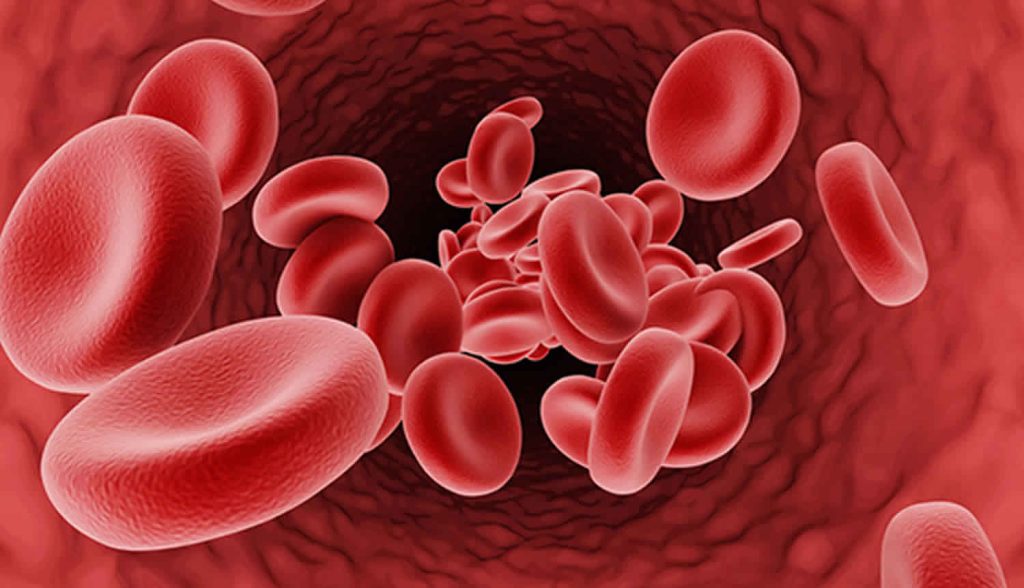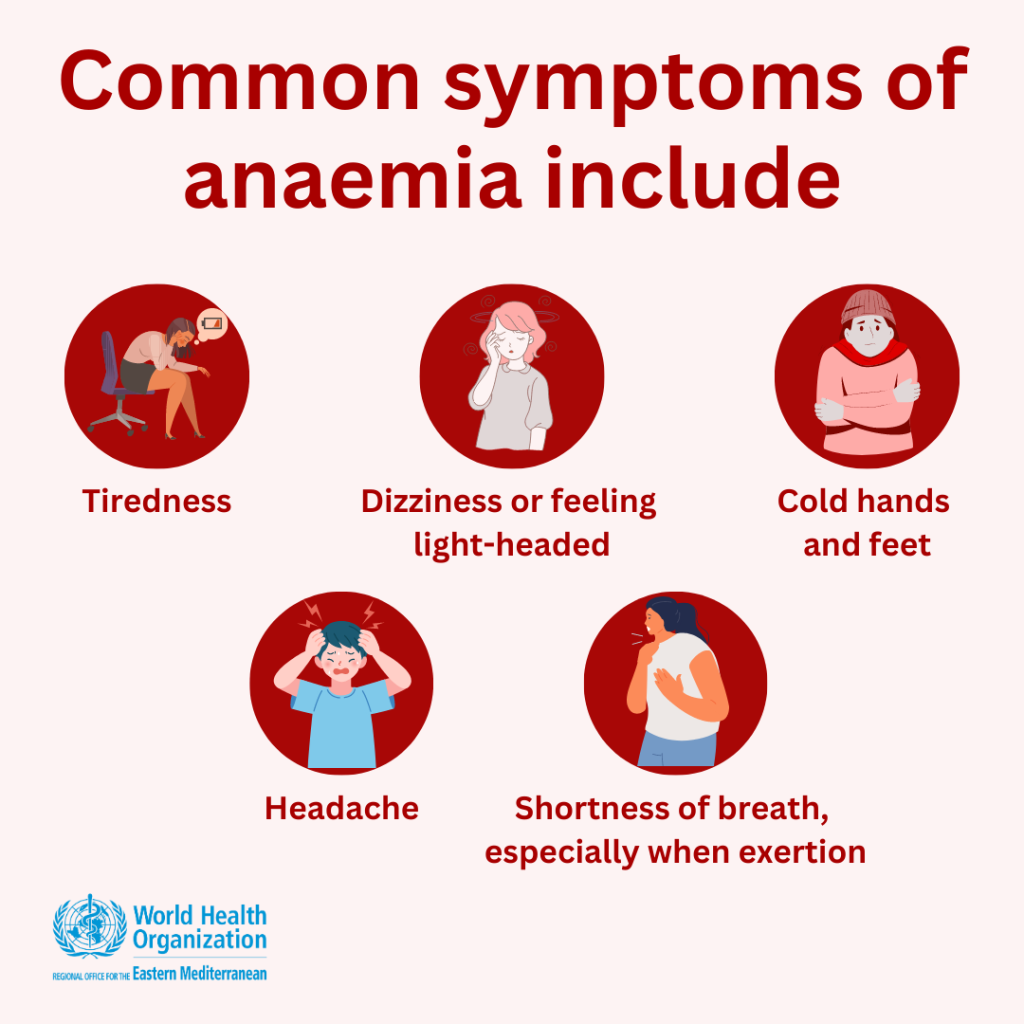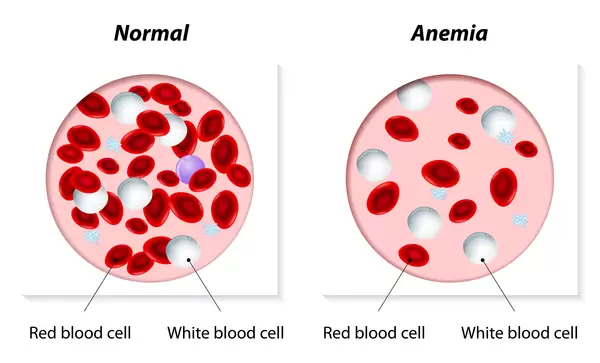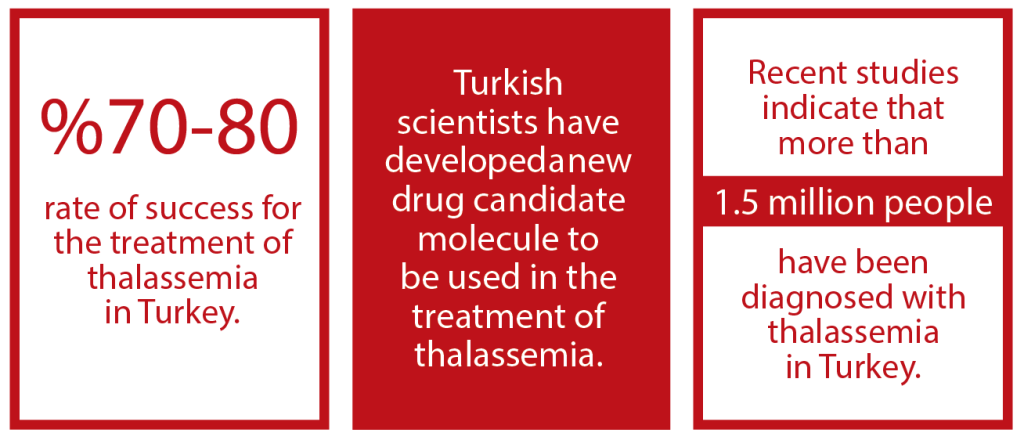What is Mediterranean Anemia, Its Symptoms, and Treatment of Mediterranean Anemia in Turkey? Thalassemia, also known as Mediterranean anemia, is a disease generally seen in the Mediterranean region. This disease is passed on from generation to generation by genetic means. By definition, Thalassemia, namely Mediterranean Anemia, is an anemia disorder. There are approximately 1.4 million thalassemia carriers within the borders of Turkey. There are about 4500 people with thalassemia. What is Mediterranean Anemia, How is it treated? Before going through this information, it is useful to say that it is a preventable disease.
- What are the Causes of Mediterranean Anemia?
- What Is The Mediterranean Blood Type?
- What Is The Life Expectancy of a Person With Thalassemia?
- What are the Symptoms of Mediterranean Anemia?
- What are the Types of Mediterranean Anemia?
- Who Gets Mediterranean Anemia?
- How is Mediterranean Anemia Treated?
- Mediterranean Anemia Treatment
- What is a Mediterranean Anemia Carrier?
- How should Mediterranean Anemia Carriers be fed?
- Carrying Thalassemia Why Is It Important to Know?
- Do Mediterranean Anemia Patients Have Children?
- Does Mediterranean Anemia Pass to Children?
- Manage Thalassemia
- Mediterranean Anemia Treatment Prices in Turkey
- Is thalassemia a big deal?
If the parents are carriers, there is a 25% chance that the baby will have thalassemia. This disease is detected after screening tests. There are many forms of the disease. But the most serious is beta-thalassemia. It usually occurs in babies after 6 months. If not diagnosed and treated early, it can cause organ damage. From the moment it is diagnosed, it is tried to be controlled by transfusing blood to the patient.
With today’s technology, a clear cure is available. This treatment is stem cell therapy, but for this treatment to be successful, the person’s organs must not be damaged. In the carrier group, only anemia is seen. There is no organ damage. It does not need to be treated.
What are the Causes of Mediterranean Anemia?

Along with the world and the world, Turkey is making progress in the field of health. As a result of serious research, the causes and treatment methods of many diseases have been found, while the cause of many diseases has still not been found. This disease is Thalassemia, namely Mediterranean Anemia. The question of what are the Causes of Mediterranean Anemia is asked by everyone and an answer is sought. But the cause of this disease has not been solved yet.
Especially people living in the Mediterranean region have a very high incidence of this disease. Because this disease is passed on to generations through genes. If we look at the rates, if the parents are carriers of thalassemia, 25% of the babies are born sick or 50% continue their lives as carriers. In short, if both the mother and father have Thalassemia, there is only a 25% rate for the child to be born without the disease and live without a carrier. Generally, serious complications are not seen in carriers. But it affects the quality of life.
What Is The Mediterranean Blood Type?
There is no such thing as a Mediterranean blood type. Blood type is determined by the presence or absence of certain proteins on the surface of red blood cells. The most common blood types are A, B, O, and AB. These blood types are found all over the world, including in the Mediterranean region.
Some people may use the term “Mediterranean blood type” to describe people who have a blood type that is common in the Mediterranean region. However, there is no scientific evidence to support the claim that there is a specific Mediterranean blood type.
People with certain blood types may be more likely to have certain health conditions. For example, people with blood type O are more likely to have stomach ulcers, while people with blood type A are more likely to have heart disease. However, these are just general trends, and there are many other factors that can influence a person’s risk of developing a disease.
What Is The Life Expectancy of a Person With Thalassemia?
A thalassemia is a group of blood disorders that cause the body to produce fewer than normal healthy red blood cells. This can lead to anemia, which can cause fatigue, shortness of breath, and pale skin. Thalassemia is most common in people of Mediterranean, Middle Eastern, and South Asian descent.
The life expectancy of a person with thalassemia depends on the severity of their condition and the type of treatment they receive. People with mild thalassemia may have a normal life expectancy, while people with severe thalassemia may have a shorter life expectancy.
In the past, people with severe thalassemia often died by early adulthood. However, with advances in treatment, people with severe thalassemia can now live into their 50s, 60s, and beyond.
The most common treatment for thalassemia is blood transfusions. Blood transfusions can help to increase the number of red blood cells in the body and improve symptoms of anemia. People with severe thalassemia may need to receive regular blood transfusions, possibly every few weeks.
Another treatment for thalassemia is chelation therapy. Chelation therapy removes excess iron from the blood. Iron can build up in the blood of people with thalassemia due to the frequent blood transfusions that they receive. Chelation therapy can help to prevent iron overload, which can damage organs such as the liver and heart.
What are the Symptoms of Mediterranean Anemia?
The most common type of thalassemia is AAA. In other words, it appears as Familial Mediterranean Anemia.
We can answer the question of what are the symptoms of familial Mediterranean anemia as follows:
- The occurrence of fatigue
- Jaundice in the eyes
- Enlargement of the person’s spleen
- Deformities in facial bones
- Facial appearance
- darkening of the urine
- Loss of appetite
- Non-healing wound formations on the legs
- The person may get tired quickly

What are the Types of Mediterranean Anemia?
When we look at the Types of Mediterranean Anemia, there are 4 different types. We can list them for you as follows:
- Silent Carrier (Thalassemia Minima) is difficult to detect in these carriers who have mild anemia. If a clear diagnosis is to be made, it is necessary to apply it to gene analysis.
- Carrier (Thalassemia Minor) Anemia manifests itself in these cases, which are also in the carrier group. Extra scans are needed when diagnosing, as they resemble iron deficiency.
- Thalassemia Intermedia In these people, who are both carriers, the disease is moderate. There is no need for blood transfusion in these cases.
- Thalassemia Major This case is the most severe. Babies born between 4-12 months show symptoms and are diagnosed.
Who Gets Mediterranean Anemia?
Thalassemia can be seen in many countries and people around the world. It is generally common in the Mediterranean Region. In short, if we look at Who Gets Mediterranean Anemia:
- It is seen in people living in Italy, Greece, Spain, Cyprus, Mediterranean and Aegean coasts of Turkey, Pakistan, India, West India, and the Far East. The cause of the appearance was not found.
How is Mediterranean Anemia Treated?
After the diagnosis of thalassemia, many doctors come together and plan the treatment process. These departments include specialist doctors and surgeons from departments such as Hematology, Cardiology, Endocrinology, Psychology, and Pediatrics. Treatment should continue without interruption and in cooperation with family and physicians. If we answer the question of How to Treat Mediterranean Anemia:
- With blood transfusion
- With Iron Chalazion Treatment
- Treatment is carried out with Stem Cell Transplantation
Mediterranean Anemia Treatment

Mediterranean anemia, also known as thalassemia, is a blood disorder that causes the body to produce fewer than normal red blood cells. This can lead to anemia, which can cause fatigue, shortness of breath, and pale skin. Mediterranean anemia is most common in people of Mediterranean, Middle Eastern, and South Asian descent.
There is no cure for Mediterranean anemia, but there are a number of treatments that can help to manage the condition and improve symptoms. The type of treatment that a person receives depends on the severity of their anemia and the specific type of Mediterranean anemia that they have.
Blood transfusions are the most common treatment for Mediterranean anemia. Blood transfusions can help to increase the number of red blood cells in the body and improve symptoms of anemia. People with severe Mediterranean anemia may need to receive regular blood transfusions, possibly every few weeks.
Chelation therapy is a treatment that removes excess iron from the blood. Iron can build up in the blood of people with Mediterranean anemia due to the frequent blood transfusions that they receive. Chelation therapy can help to prevent iron overload, which can damage organs such as the liver and heart.
A stem cell transplant is a procedure that can cure Mediterranean anemia. However, stem cell transplants are risky and are only recommended for people with severe Mediterranean anemia who have a matched donor.
In addition to medical treatments, there are a number of lifestyle changes that people with Mediterranean anemia can make to improve their health and manage their symptoms. These changes include:
- Eating a healthy diet that is rich in iron, folic acid, and vitamin B12.
- Exercising regularly.
- Avoiding smoking and excessive alcohol consumption.
- Getting regular checkups and monitoring from a doctor.
Here are some additional tips for managing Mediterranean anemia treatment:
- Drink plenty of fluids to stay hydrated.
- Avoid infections by washing your hands frequently and getting vaccinated against common diseases.
- Protect yourself from the sun by wearing sunscreen and protective clothing.
- Be aware of the signs and symptoms of complications from Mediterranean anemia, such as iron overload, liver disease, and heart disease.
If you have Mediterranean anemia, it is important to work with your doctor to develop a treatment plan that is right for you. By following your doctor’s recommendations and making healthy lifestyle choices, you can manage your symptoms and live a long and healthy life.
What is a Mediterranean Anemia Carrier?
Mediterranean anemia is a genetically inherited disease that is usually seen on the Mediterranean coasts. The person is either sick or is a carrier of this disease. So what is a Mediterranean Anemia Carrier, let’s find out together. A carrier of Mediterranean anemia is someone who carries this disease in their genes, does not show any serious disease symptoms, and has only mild anemia. It does not need to be treated. However, as he is a carrier, this disease is passed on to his child.
How should Mediterranean Anemia Carriers be fed?
It is not correct to give clear information on How to Feed a Carrier of Mediterranean Anemia. Depending on the type of carrier, feeding patterns may also change. If the person is a silent carrier and does not even know it himself, feeding may cause distress for him. For this reason, if he knows that he is a carrier, he can talk to a specialist dietitian and ask about diet ideas and manage his nutrition together.
You can call us for more detailed information.
Carrying Thalassemia Why Is It Important to Know?
Thalassemia is a blood disorder that is caused by a mutation in the genes that produce hemoglobin, the protein in red blood cells that carries oxygen. People who carry the thalassemia trait have one copy of the mutated gene, but they do not have any symptoms of the disease. However, people who have two copies of the mutated gene can develop thalassemia major, a severe form of the disease that can be life-threatening.
There are two main types of thalassemia: alpha thalassemia and beta thalassemia. Alpha thalassemia is more common in people from Southeast Asia and the Mediterranean region, while beta thalassemia is more common in people from the Mediterranean region, the Middle East, and Africa.
If you are thinking about having children, it is important to know if you carry the thalassemia trait. If you and your partner both carry the trait, there is a 25% chance of having a child with thalassemia major. There are a number of tests that can be used to diagnose thalassemia, including a blood test and a genetic test.
There is no cure for thalassemia, but there are treatments that can help to manage the condition and improve symptoms. Treatment for thalassemia may include blood transfusions, chelation therapy, and stem cell transplantation.
Here are some of the reasons why it is important to know if you carry the thalassemia trait:
- To make informed decisions about pregnancy and childrearing. If you know that you carry the thalassemia trait, you can talk to your doctor about the risks of having children with the disease. There are a number of options available to couples who are at risk of having a child with thalassemia, such as genetic testing during pregnancy and preimplantation genetic diagnosis (PGD).
- To get early diagnosis and treatment. If you have thalassemia, early diagnosis and treatment can help to improve your symptoms and quality of life.
- To avoid complications. Thalassemia can lead to a number of complications, such as iron overload, liver disease, and heart disease. Knowing that you have thalassemia can help you to take steps to prevent these complications.
- To participate in clinical trials. There are a number of clinical trials underway to develop new treatments for thalassemia. If you know that you have thalassemia, you may be eligible to participate in one of these trials.
If you are concerned that you may carry the th talk to your doctor. They can order a blood test to determine if you have the trait.

Do Mediterranean Anemia Patients Have Children?
Two people in Turkey go through some screening tests before getting married. This includes blood tests. In line with these analyses, it is clear whether people have Mediterranean anemia. Since some carriers do not show any symptoms, they learn that they are sick as a result of these tests.
If the test taker has thalassemia, this result is not a problem for them to get married and have children. If we were to answer the question of Can Mediterranean Anemia Patients Have Children, yes, these individuals may have children, but they need to think well and decide before having children. This disease will also be passed on to their children. If one of the couples is a carrier, the baby will be a carrier with a 50% probability, if both of the couples are carriers, their child will be a carrier with a 50% probability and a disease with a 25% probability. The probability of being healthy remains at 25%.
Does Mediterranean Anemia Pass to Children?
The answer to the question of “Does Mediterranean Anemia Pass to Children” is within the possibilities and rates. If one of the parents is a carrier, the baby will be 50% carrier and 50% healthy. If both parents are carriers, there is a 50% chance that the baby will be a carrier, 25% sick, and 25% fit.
Manage Thalassemia
Here are some things you can do to manage thalassemia and reduce your risk of complications:
- Follow your doctor’s recommendations for blood transfusions and chelation therapy.
- Eat a healthy diet that is rich in iron, folic acid, and vitamin B12.
- Exercise regularly.
- Avoid smoking and excessive alcohol consumption.
- Get regular checkups and monitoring from a doctor.
Mediterranean Anemia Treatment Prices in Turkey
Turkey has been reported by the world press for its work in the field of health. This advertisement also attracted the attention of foreign citizens. For this reason, there has been an increase in travel to Turkey for treatment.
The vast majority of treatments in Turkey are successful. Factors such as the experience of the doctors, the hospitable and helpful Turkish citizens, the advanced, clean, and fully equipped hospitals, the affordable treatment prices, and other expenses also explain the reasons for preference.
It would not be correct to give clear information about Mediterranean Anemia Treatment Prices in Turkey. Many factors such as the type of the disease, the type of treatment, and accommodation affect these prices. You can contact us if you want to get information about the treatment of Mediterranean anemia and price information. In addition, if you come to Turkey for treatment through us, we can facilitate your visa procedures with our invitation letter sent by us to the consulate.

Is thalassemia a big deal?
Thalassemia can be a big deal, especially for people with severe forms of the disease. People with severe thalassemia may need to receive regular blood transfusions and chelation therapy throughout their lives. These treatments can be time-consuming and have side effects.

Vimfay International Health Services